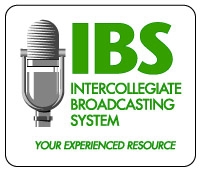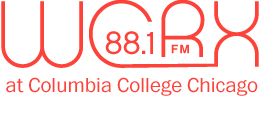This past Saturday I attended the Intercollegiate Broadcast System’s Midwest conference in Chicago, hosted by Columbia College. This was my first IBS conference, despite having advised a Chicago-area college station for the last four years.
This one-day event was billed for high schools in addition to colleges, and the attendance appeared equally split between secondary and post-secondary students and advisors. The majority of sessions were dedicated to on-air work and how students can produce better programming, with sessions dedicated to production, radio drama, sports and morning shows. Social media and internet were also significant components of the conference, both with regard to promoting a station and audience interaction.
There was also a strong emphasis on radio as a career, with many sessions dedicated to creating a good demo reel and how to get into the industry. It was this aspect of the conference I found most curious, since the number of jobs in the radio industry has shrunk significantly over the last sixteen years. I acknowledge that many students in high school and college radio do have their sights set on a career in radio, but I must admit to being surprised at just how much of the conference was given over to these professional ambitions at this moment in radio history.
Given the balance of stations represented, the sessions seemed tilted towards college and high school stations that mimic commercial formats and approaches to broadcasting, rather than those which hew to a more traditional type of college radio, which embraces underrepresented music, ideas and culture, attempting to be an alternative to commercial radio, rather than a farm league. In part this particular emphasis of IBS Chicago probably stems from the orientation of the host station WCRX at Columbia College.
During the day WCRX is a tightly playlisted Top 20 station during the daypart, where students have 3 –7 minutes per hour to make their mark with voice breaks. As the only surviving 4-year bachelor’s degree radio program, this format fits with the apparent aim to train students for the radio industry; there’s no denying this is the way most commercial radio is operated. And, to be fair. WCRX airs specialty programs of many types on the evenings and weekends. Nevertheless, IBS Chicago seemed primarily aimed at the station and student DJ looking to break into mainstream commercial radio.
My favorite session was “Programming and Hosting a Show from Scratch,” which featured panelists from Chicago’s public radio station, a Sirius/XM radio host, a host and operations manager from a online only station and the host of a nighttime dance music program. Everyone on the panel was thoughtful and gave realistic advice, but I was particularly impressed by the Sirius/XM host Abe Kanan, a Columbia College alum who started a podcast in his bedroom that was discovered by Howard Stern, then picked up for his satellite radio channel. Kanan was blunt is his assessment of the industry, acknowledging that most stations are automated and voicetracked, noting that big owners like Clear Channel are less interested in any individual station than dominating a particular market. He observed that Clear Channel would flip the format of a successful station in order to try and hit a different audience or demographic. But he was also encouraging in his advice to students to figure out their own on-air personalities and to run with it and do their own thing.
Outgoing Chicago Public Radio afternoon host Steve Edwards echoed and balanced Kanan’s advice, telling students “don’t try to be the next Howard Stern, be the next you.” Both Edwards and Kanan stressed how much off-air preparation matters for having a good on-air performance. Edwards summary advice was to be the “best performing you,” on air, and that the authenticity will matter.
There were two elements that I really wished had been covered at the conference: alternative career paths and student station governance. As a college radio advisor I have had the rare privilege of watching four classes of students grow, learn and mature with their experiences in college radio. Only a fraction get into the radio or broadcast industry, and yet many more are able to apply the skills and knowledge they gain in their college experience to their post-graduate careers. I think it would be extremely valuable for college and high school radio students to learn how they can utilize this experience even if they aren’t able to get radio industry jobs, or don’t want them in the first place.
Being at IBS Chicago also reminded me that many school stations are run primarily by professional staff, often veterans of the radio industry. These are stations that serve much more explicitly as training grounds and are more integrated into curriculum than stations which are student-run clubs or extra-curricular activities. My own college radio experience was the latter type, and the station I advise is also in that mold. I didn’t get a sense for the breakdown of how many students in attendance were from which kind of station. Nevertheless, I think that at least one session tackling the challenges that student managers face would be useful and appropriate.
As we have chronicled here at Radio Survivor, college radio is at a bit of a crossroads as we dive into the second decade of the 21st century. Yet, despite the attention paid to internet broadcasting and social media, the IBS Chicago conference otherwise seemed firmly rooted in the 1990s, in somewhat willfull denial of the devastation that industry consolidation wreaked upon commercial radio and the industry as a whole. I don’t know if it’s wishful thinking, or a sort of protective bubble.




